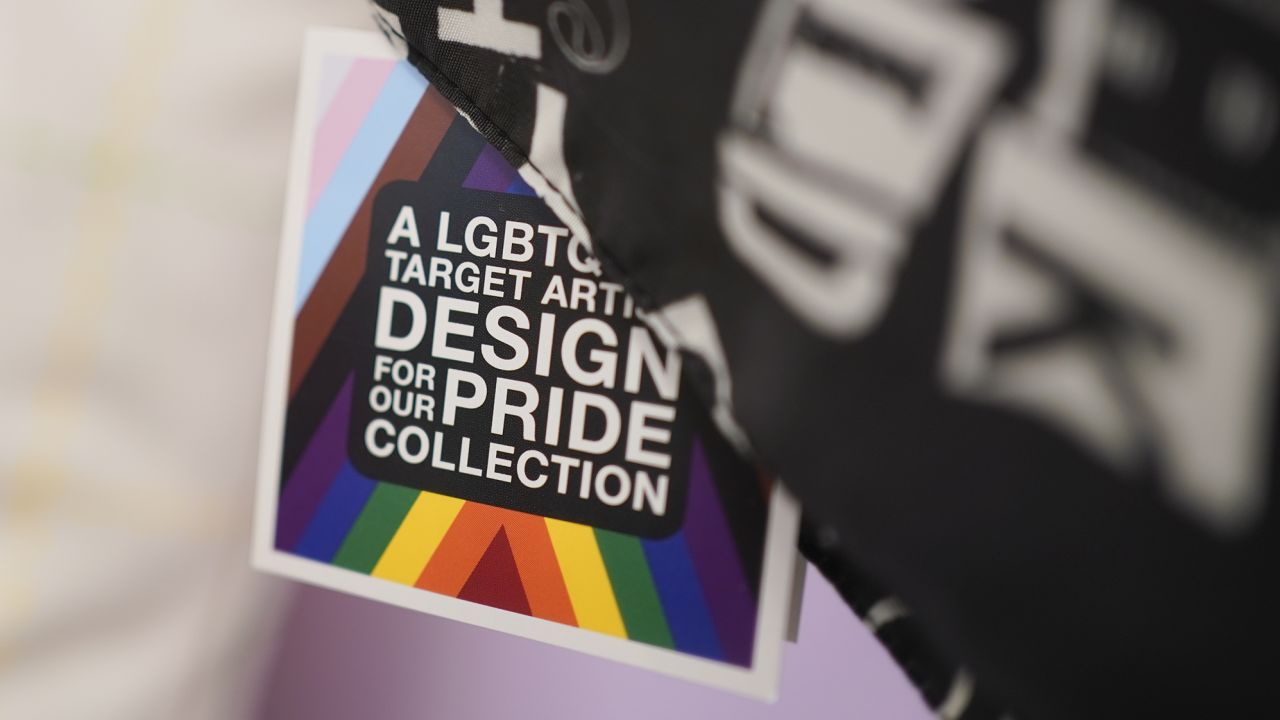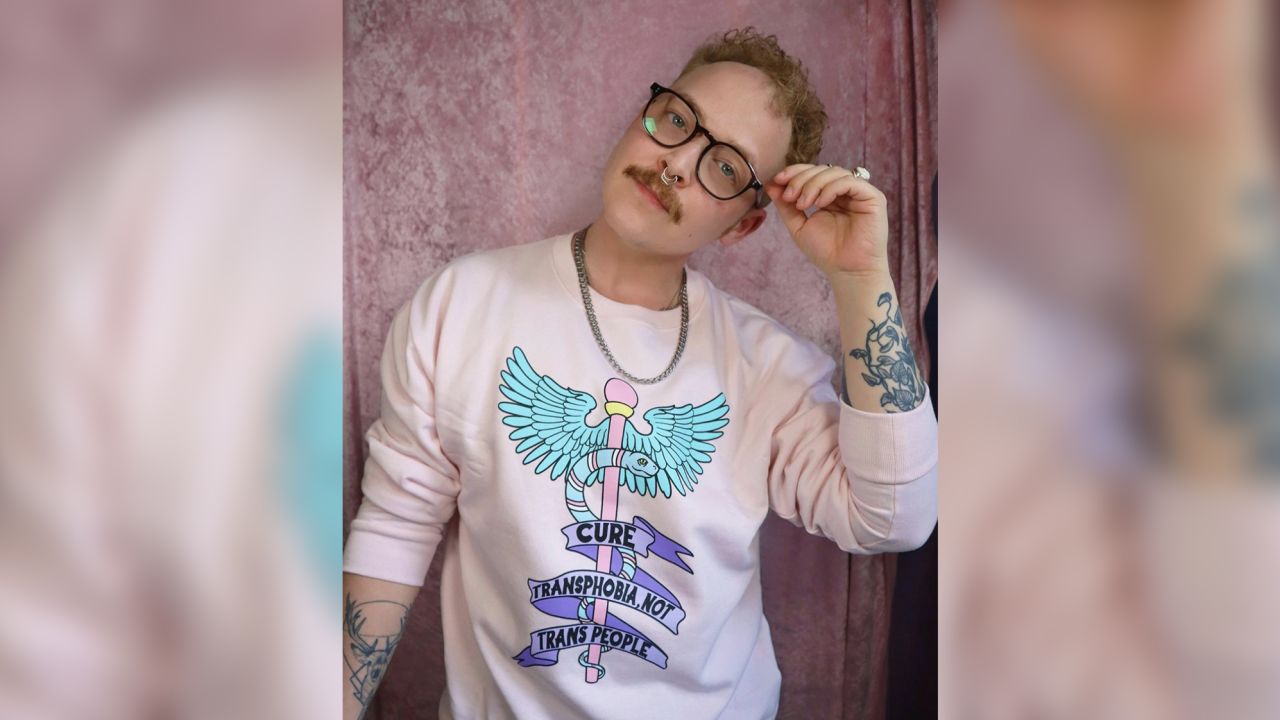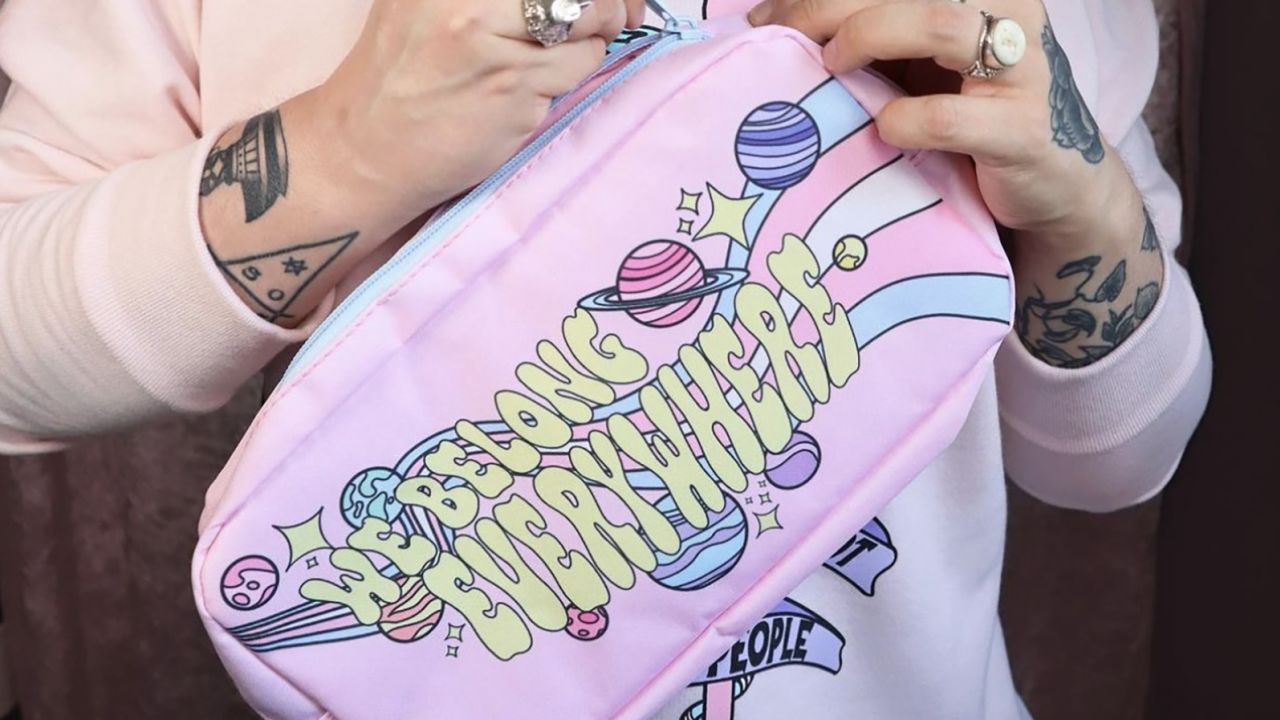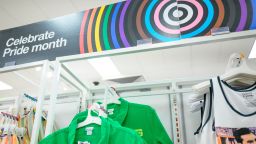When a Target distributor reached out to Erik Carnell last year about possibly placing his brand, Abprallen, in Target stores, he was thrilled.
It was “the biggest opportunity of my career,” Carnell told CNN. “I was ecstatic at the thought of being able to share my stuff with an entirely new market.” The London-based Abprallen, described on its Instagram page as “art and accessories for the proud, loud, and colourful,” would go from a small startup to a brand available at a major US retailer.
In the following months, Carnell pitched Target and came up with designs that would be appropriate for the big box store, he said. Ultimately, Target started selling three Abprallen items for adults: A sweatshirt, a tote bag and a messenger bag, each emblazoned with a different phrase.
But then things fell apart. About a week and a half ago, Carnell said, he started receiving hundreds of hateful messages including death treats, some of them incorrectly saying the collection was being marketed to children, as some people lashed out at Target over its Pride offerings.
By Wednesday, Target had pulled Abprallen items from its US stores and online market, Reuters reported.

“Since introducing this year’s collection, we’ve experienced threats impacting our team members’ sense of safety and wellbeing while at work,” Target said in a statement about this year’s Pride collection.
“Given these volatile circumstances, we are making adjustments to our plans, including removing items that have been at the center of the most significant confrontational behavior,” Target said.
Carnell’s immediate reaction was relief.
“The amount of backlash that I have gotten has been overwhelming,” he said. “I just hope that this is the beginning of the end of the messages and the onslaught that I’m getting.”
But for a small brand, losing access to Target’s massive reach is a blow.
“When this has all died down, I’m going to be incredibly disappointed that such a huge opportunity was taken away from me.”
But Carnell understands Target’s decision regarding his line.
“I don’t know what, other than pulling it, could be done to help protect the retail employees,” he said. “Their safety absolutely has to be the top priority.”
Still, Carnell is disappointed that Target wasn’t more communicative with him about the decision. Though he’s heard from a distributor he was working with, he hasn’t received any word from the corporate office, he said.
Target did not immediately respond to a request for comment for this story.
Labor of love
Abprallen was born out of Carnell’s affinity for drawing and a desire to connect with his queer community.
“I created a couple of pins about six years ago, and it’s grown since then,” he said. For Carnell, the work is personal.
“I take what I do incredibly seriously,” he said. “I owe it to my younger self, who was so lost and in so much pain … I owe it to him to create stuff that he could be proud of, stuff that tells him that who he is is not wrong. That who he is is wonderful,” he said.
When Carnell, who is trans, thinks about his younger self he recalls a time “when I was a child and desperately wished that I was a boy, and didn’t realize that there was a way I could do that.” Carnell knows his experience was not isolated. “There are so many people out there like him,” he said, referring to his younger self.

With Abprallen, Carnell wanted to create Pride items that were more than “just a rainbow slapped haphazardly on a T-shirt.”
Abprallen sells shirts, elaborate pins and other accessories that juxtapose pastel blues, pinks and purples with skulls, skeletons and UFOs. The images are paired with a variety of phrases, like “Transphobia sucks” and “Gay icon.” Some are in direct conversation with specific incidents, like “Witches & wizards love trans people,” a response to Harry Potter author J.K. Rowling’s heavily criticized comments about trans people.
But one design sparked an uproar online.
Hate spreads online
The backlash against Carnell and Abprallen has largely centered around a design that says “Satan respects pronouns.” Online, an anti-LGBTQ campaign urged a boycott of Target, showing images of the phrase on an Abprallen T-shirt. On TikTok, a video circulated showing an employee being asked if she supports “satanic Pride propaganda.” Carnell has been called a Satanist in the right-wing press.
But that particular design was never available at Target.
In early conversations, the retailer told Carnell that the “Satan respects pronouns,” design would not be a good fit, he said. The designs that ended up for sale are of a more neutral tone, with the phrases “Cure transphobia, not trans people,” “We belong everywhere,” and “Too queer for here.”
Still, Carnell was not surprised when the partnership caused a backlash (though he didn’t expect it to be this bad).
“I’m not naive. I absolutely knew that there would be negativity thrown my way,” he said. “I understand that people are incredibly passionate with their hatred towards LGBT people. And the current political climate is one that tells those people that they are correct to feel that way,” he said.

On Twitter, right-wing commentator Matt Walsh described a targeted campaign that goes beyond Abprallen or Carnell. “The goal is to make ‘pride’ toxic for brands,” he said. “If they decide to shove this garbage in our face, they should know that they’ll pay a price. It won’t be worth whatever they think they’ll gain.”
The virulent language, plus the threats reported by Target, come at a time when trans rights are under attack in the United States. Over 400 anti-LGBTQ bills were introduced in state legislatures this year through April 3, according to American Civil Liberties Union, including ones restricting access to gender-affirming care for trans youth. Transgender people are more than four times as likely to be victims of violent crime than cisgender people, according to a study from the UCLA School of Law.
An opportunity lost
For direct-to-consumer brands, a partnership with a major retailer is often “the holy grail,” said Ian Schatzberg, co-founder of the branding agency General Idea, which works with large and small brands. “It’s very expensive to run a DTC business,” he said. “The role that the retailer plays in the lives of these brands is really critical to their success.”
Generally, “if they lose distribution, they could lose their business,” said Schatzberg, adding that large retailers are “vital” for small online brands.
For LGBTQ+ brands, space on retail shelves is “a source of financial existence, and also of pride and visibility,” said Schatzberg. General Idea is an LGBTQ-owned business, he noted. “If you are removed, it creates not just an effect on that business owner, but it creates an effect on the community.”
Before Target, Carnell, who runs Abprallen by himself, sold Abprallen products online, as well as in some markets and to some wholesale clients, he said.
One silver lining of the attention has been a spike in support, financial and emotional. The Abprallen site has gotten so many orders that he temporarily closed the virtual store in order to catch up.
“I’ve been inundated with support,” he said, including “so many beautiful, compassionate, loving messages,” he said. “And when I’m in a better head space, I know how much that’s going to have a positive impact on me.”
Article From & Read More ( Threats to LGBTQ+ creator got so bad after Target partnership, he’s relieved they’re off shelves - CNN )https://ift.tt/QDdENex
Business
Bagikan Berita Ini















0 Response to "Threats to LGBTQ+ creator got so bad after Target partnership, he’s relieved they’re off shelves - CNN"
Post a Comment